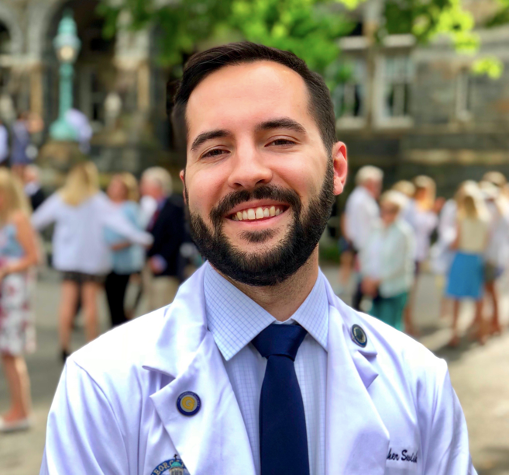The Role of the Humanities in Medical Studies
Christopher Swisher (M’22)

Much could be said about the daily schedule of a Georgetown medical student: the facts memorized, the exam maneuvers practiced, the notes written. However, in my mind, the day of a medical student is best described as the collecting and editing of unfinished stories. Within the fragmented tales we are told, we must parse through voluminous exposition for the essential details and carefully trace the rising action of illness marred by complications and setbacks to its climax. Our ever-present raconteurs are our patients and, though each story of sickness we hear is unique, all are bound together with the intensely human elements of fear and hope.
In my third year of studying medicine, these same fears and hopes reflexively reverberate in me each day as I aim to guide the falling action of my patient’s hospital stay toward a happy denouement of health and recovery. In my brief time in the hospital thus far, I have found that to effectively learn medicine, especially in the context of the societal upheaval of the current pandemic, requires a broadening of perspective intermingled with a healthy dose of self-reflection. Though it is easy to get lost in the comforting confines of treatment algorithms and lab values, medicine for me gains its inimitable allure with its ability to serve as a true focal point of human triumph and tragedy.
To make sense of medicine and its daily barrage of joy and sorrow and new life and death, I often transport myself back not to information packed PowerPoints of pathology but to the spirited debate and dissection of literature in my Georgetown Medical Humanities courses. Thus, each day on the wards I try to work out further meaning from my stoic elderly patient with his terse Hemingway-esque statements and to follow the narrative thread of my seven-year old’s breathless stream of consciousness worthy of Virginia Woolf. My patients deserve to be more than a medical diagnosis or a problem to be solved; they deserve to be fully fleshed out characters with known and respected needs, personalities, and desires.
Fortunately, the incredible Medical Humanities program at Georgetown with its focus on promoting interdisciplinary connections and examining problems from multiple perspectives provides me with the tools to better understand and connect with my patients. Amid the barely controlled chaos of the hospital and the constant uncertainties of COVID, I must reach for more than the cold hard medical facts to understand my patients in all their human complexities. Aided with an appreciation of the humanities, I can confidently reach for the beautiful messiness of their stories.